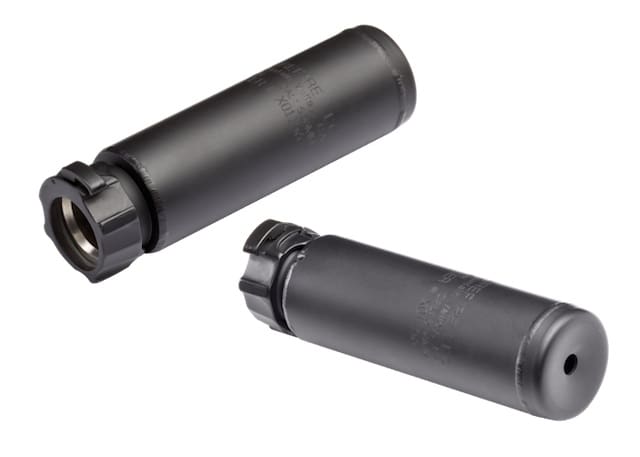Illinois is the only state with a complete ban on suppressor usage, prompting a recent lawsuit to overturn the unjust law. Unfortunately for the lawful gun owners in the Prairie State, a district judge has ruled that the punitive law can stand.
Under current Illinois law, it is a felony to own or possess any device that muffles the sound of a firearm. That’s somewhat incredible, given the fact that many foreign countries require the use of suppressors for hearing protection purposes.
The plaintiffs in the case had a pretty good argument. They contended that suppressors protect hearing, reduce noise pollution and can even improve accuracy in defensive situations. They weren’t even trying to bypass the federal tax stamp regulations.
Ultimately, however, Judge David W. Dugan with the U.S. District Court for the Southern District of Illinois ruled that suppressors are not “arms.” Consequently, their ownership is not protected under the Second Amendment.
In his ruling in the case, Judge Dugan began by discussing suppressors from a historical perspective.
“It is not clear that the Framers contemplated the eventual creation of a ‘silencer’ or any device that would serve to reduce the report of a firearm,” he noted. “Originalism would suggest that does not matter. What matters is whether the term ‘arms,’ as it was understood by those of colonial times, would have included devices that suppress the volume emitted by a firearm when discharged. Of course, Plaintiffs contend in their pleadings and briefs that silencers are, in fact, ‘arms’ for the purpose of Second Amendment protection.”
He then went on to analyze the plaintiffs’ contention that suppressors were “arms,” so thereby protected by the Second Amendment.
“The difficulty with the Plaintiffs’ contention that silencers are ‘arms’ is that, unlike an AR-15 or AK-47 rifle, for example, Plaintiff has not shown that silencers are modern forms of weapons known to be in use or available in the ratification period,” Judge Dugan wrote. “The Plaintiffs’ Complaints and the record are devoid of any reference to a time in the history of our country where any early generation device, accessory or attachment was broadly employed to reduce the report of a firearm.
“Put another way, Plaintiffs offer nothing to suggest there is a fixed historical understanding that devices which serve only to operation of a firearm by reducing its reports are ‘arms’ themselves.”
Ultimately, the judge determined that suppressors are not “arms,” so a ban on them doesn’t violate the Second Amendment.
“Plaintiffs rely on their Complaints to place before this Court the evidence they claim they need to make their claims plausible for purposes of a Rule 12(c) motion,” the ruling concluded. “The parties agree that there are no factual disputes. However, as noted, nothing in the pleadings demonstrates the existence of a historical precursor to a silencer that would show prior use or understanding by those living near the time when the Second Amendment was ratified.
“As a result, Plaintiffs have failed to plead a plausible claim and Defendants are entitled to judgment as a matter of law. Accordingly, Defendants’ Motion for Judgment on the Pleadings is granted.”
Read full article here


